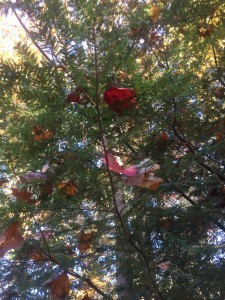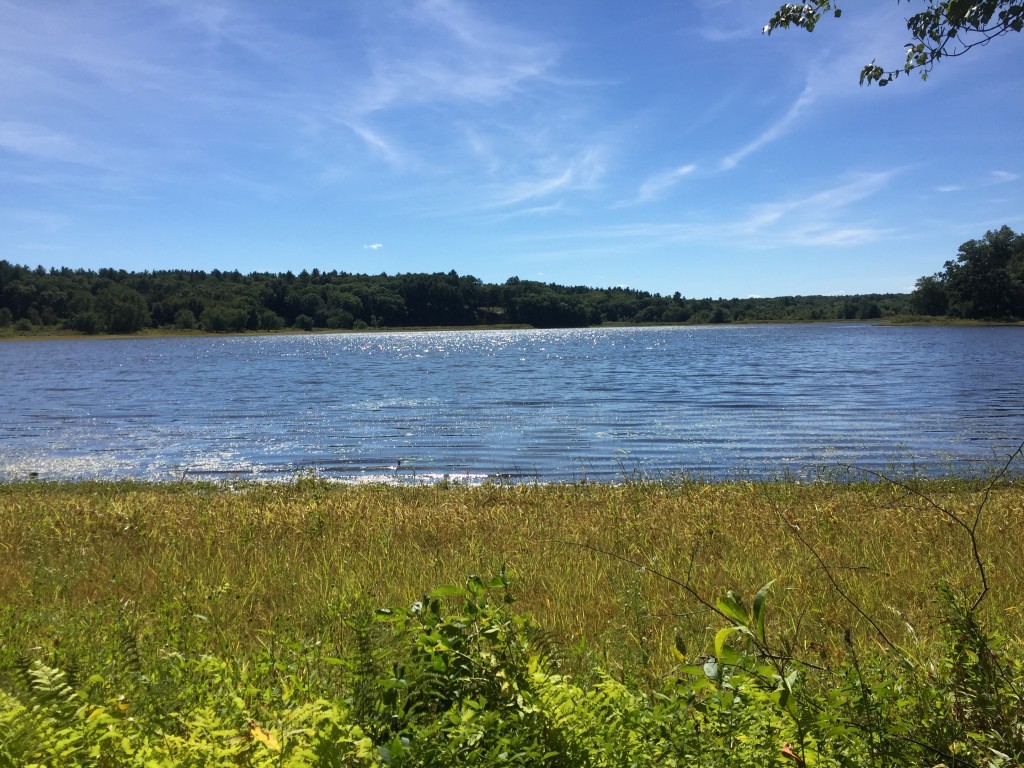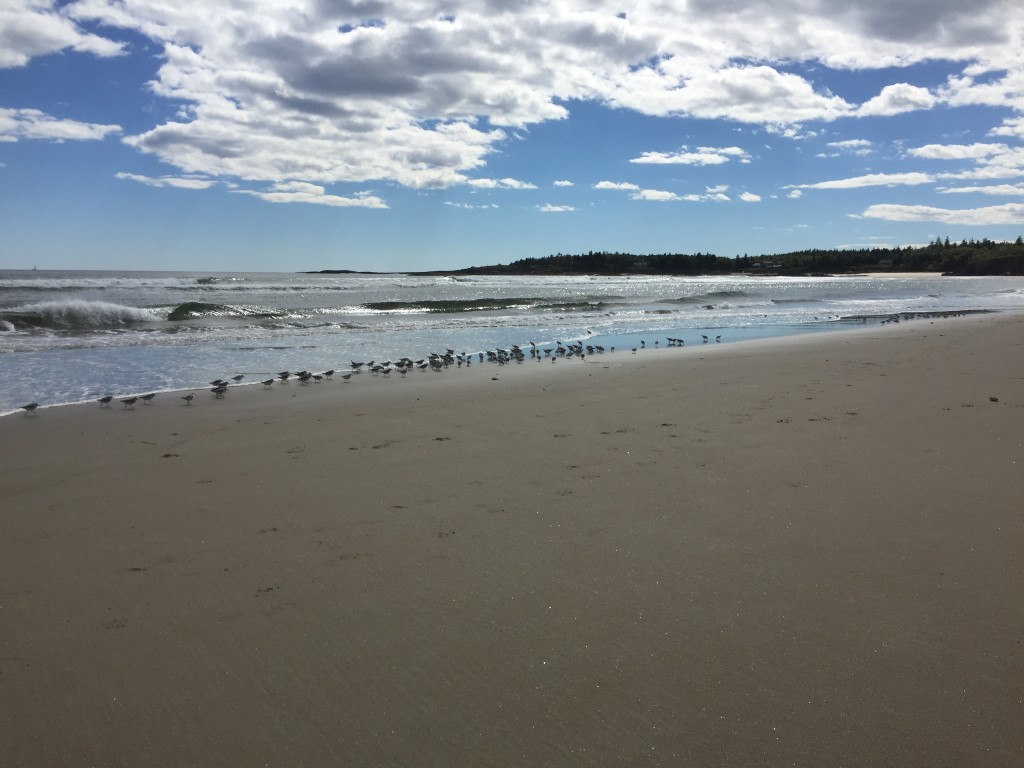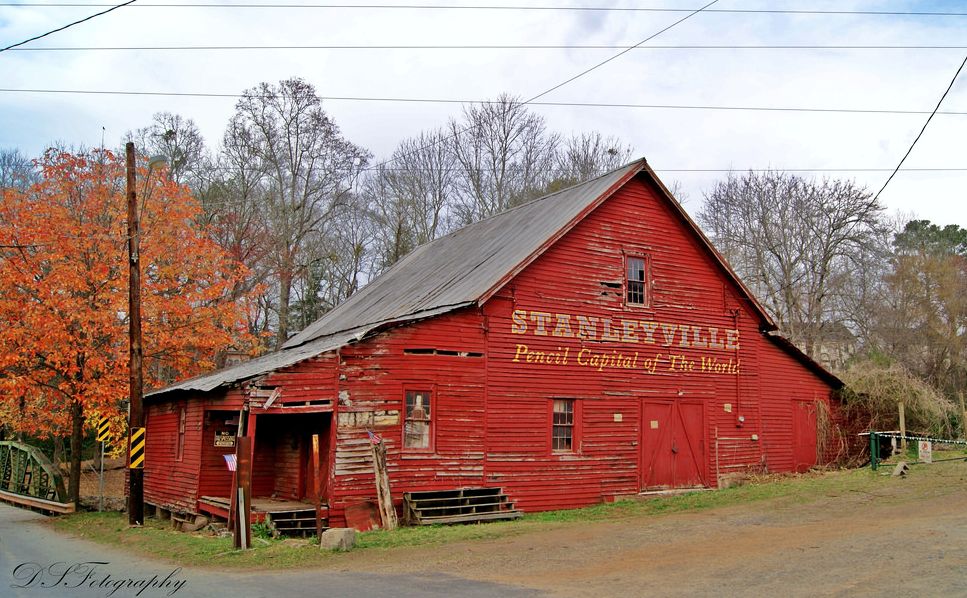By fall I mean literally the falling of the leaves, though some mean by it the changing or the acquisition of a brighter color. This I call the autumnal tint, the ripening to the fall. Thoreau, Journal, 11/3/58
Even as fall’s intense colors soar against the bluest of skies – the other day the maples were so vivid they made me squint – another story calls the eye: on many woods-walks, October’s afternoon sun slants under the still-ascendant oak canopy and makes light of all these little lives, mine included. It is, even as cold bears down, the season of the fern, when they range from dark green to pure gold to curled brown, their various seasons all arrayed simultaneously.
And it is also the season where light divorces heat. In summer, I come often to these woods for respite; in their shades of varying depth, it is cooler, even as the high sun presses heavily on the treetops. High summer always contains a little craving for darkness, for relief from all that light and heat, (which, of course, we crave equally in thin-lit January). But now the woods are like a temperate room where the curtains have been pulled back and light announces life.
A 24-hour leaf-drop: windless through the night, and when I walk down into the woods, the leaves are still falling, each detaching soundlessly and then riding its own shape down – spirals, back-and-forths, oblique meanderings left and right. And on the small evergreens, they accumulate, on some to the point where the tree is garbed in a new sweater, or daubed with decoration. The wind will come to comb them, but for now, the firs are decked out; they look ready to party.
And then, a drought-breaking, 24-hour rain, with northwest wind to follow; much is beaten to the ground, and the sight- and light-lines have opened. It is deep fall.
And in this season, the understory is the story.






